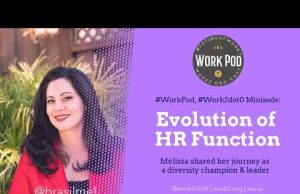In the vibrant tapestry of today’s workplace, diversity, inclusion, and equity (DEI) are more than just buzzwords; they are foundational components for cultivating a thriving organizational culture. Despite ongoing efforts to foster these principles, there remains an insidious barrier to true inclusivity: microaggressions. These subtle, often unintentional, slights can have a profound impact on the mental health of those who are targeted, predominantly affecting individuals from marginalized groups.
Microaggressions take various forms, from backhanded compliments that undermine an individual’s identity to blanket statements that perpetuate stereotypes. Imagine a female engineer who is repeatedly asked if she needs assistance with a ‘man’s job,’ or an Asian colleague who is constantly praised for their English, despite it being their first language. Even the most well-intentioned comments can alienate and diminish the individual’s sense of self-worth.
The psychological toll of these daily interactions is not to be underestimated. The persistent drip of microaggressions can erode one’s mental health, leading to stress, anxiety, and a gnawing sense of isolation in the workplace. This mental burden not only impairs personal well-being but also professional performance, as employees navigate an environment where they are subtly reminded that they do not fully belong.
Recognizing the damage caused by microaggressions requires us to look beyond overt discrimination and examine the nuances of our interactions. It’s not enough to simply have a diverse workforce; we must nurture an environment that is genuinely inclusive and equitable. A proactive company culture aims to educate all employees on identifying and addressing microaggressions – not as an exercise in blame, but as a pathway to understanding and growth.
Businesses can implement various strategies to address this problem. Effective training programs can increase awareness, while support systems such as employee resource groups (ERGs) and mental health resources can provide avenues for employees to connect and heal. Policies must be in place that allows for the reporting and addressing of microaggressions in a manner that validates the experiences of those affected.
Creating a workplace culture that is mindful of microaggressions and their impact is not an easy task, but it is a necessary one. It is a journey of continuous learning and adaptation, where listening is just as important as speaking, and actions often speak louder than words. Companies that commit to this journey send a powerful message to their employees that everyone is valued and respected, paving the way for a healthier, more cohesive workplace.
As we conclude this reflection on the unseen struggle in our workplaces, we invite you to engage with us further. Have you experienced microaggressions in your professional environment? What strategies have helped improve your mental health and sense of belonging? Sharing your stories can help foster understanding and catalyze change, ensuring that the workplace becomes a sanctuary of support, not a source of harm.

























